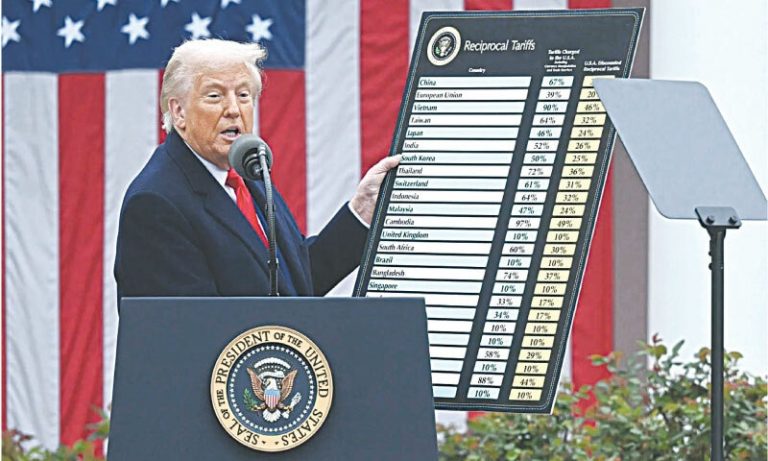Goldman Sachs warned that export data indicates increased rates of transshipments from China to the U.S. through third-party countries—a similar pattern observed during the 2018 trade war. The tariff evasion taking place today could impact more than $200 billion in U.S. imports, costing the U.S. $40 billion in tariff revenue if efforts to curb the sidestepping aren’t mitigated, bank analysts Joseph Briggs and Megan Peters said in a report.
Earlier this month, Torsten Sløk, chief economist at Apollo Global Management, estimated the Trump administration’s tariff efforts will bring in a “very significant” $350 billion in annual revenue.
As Trump imposes sweeping tariffs on countries—most recently a 100% tax on imported branded pharmaceuticals going into effect on Oct. 1—some companies have tried their best to take action to evade the levies. Many have warned that they face an impact worth billions of dollars each year. Goldman highlights the practice of transshipping, or reorganizing a supply chain to ship products from a country with lower imposed levies. Tariff dodging could also look like companies underreporting the value of goods or mislabeling products as similar goods that aren’t subject to as high of taxes.
Citing data from the United Nations Comtrade database, Goldman noted a steep increase in exports from Asian countries—particularly Vietnam—to the U.S., coinciding with a similar increase in those countries’ imports from China. While part of the correlation could be due to other countries relying more on Chinese goods as a result of tariffs, the speed of the shift could indicate transshipping, analysts said.
“Indeed, early patterns in trade data suggest some evasion of the recently implemented tariffs,” the note said.
There are also signs of foreign exporters underreporting the value of U.S. imports at the border. The discrepancy between the U.S.’s reported imports from China and China’s reported exports to the U.S. has widened by $4 billion year-to-date, Goldman Sachs said. That widening gap is in spite of the sunsetting of the de minimis exemption that allowed packages worth less than $800 to enter the U.S. without duties.
“Further, U.S. imports have been cut by larger amounts than can be plausibly explained by lower production costs, suggesting multinational companies may be avoiding tariffs by lowering reported U.S. import prices,” analysts said.
How much has the U.S. previously lost through tariff evasion?
Beyond early evidence suggesting countries may indeed be taking action to evade tariffs, evidence from Trump’s first administration—when he imposed import taxes on China—suggests the U.S. has previously lost $110 billion to $130 billion in revenue from tariff dodgers.
According to U.S. trade data cited by Goldman Sachs in a January note, the share of Chinese imports to the U.S. fell from 21.5% in 2016 to 13.5% in 2023, indicating a $240 billion reduction in China exports.
But the bank warned that this figure overstates the U.S.’s reduced reliance on Chinese exports because of tariff evasion. Goldman Sachs reported that $30 billion to $50 billion in trade was rerouted in 2023, accounting for nearly 20% of the dip in Chinese exports to the U.S. This transshipment effort only accounts for a fraction of the tariff evasion.
“Underreporting and mislabeling have likely had an even larger impact,” analysts said in the January note.
Due to reporting gaps on levied products, the gap between U.S.-reported China imports and China-reported U.S. exports widened by $150 billion. By Goldman Sachs estimations, the reporting gap was in part caused by $80 billion in tariff evasion. About $40 billion of that reporting discrepancy was due to mislabeling products as goods subject to lower tariffs.
The Trump administration, for its part, has outlined plans to crack down on transshipments, threatening an additional 40% tariff on goods shipped through a third-party country with lower levies. The Justice Department’s Office of Public Affairs announced last month the creation of the Trade Fraud Task Force to mitigate tariff evasion, as well as import smuggling.
The U.S. opened an investigation into Waaree Energies, India’s largest solar panel maker, to determine if it dodged duties bringing goods into the U.S., Bloomberg reported on Friday, citing a public notice.
https://fortune.com/2025/09/26/trump-tariffs-revenue-loss-40-billion-tariff-evasion-goldman-sachs/

